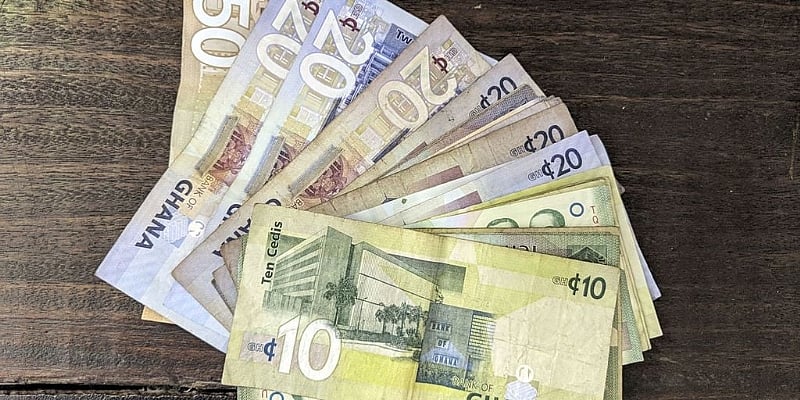The recent proclamation by some Ghanaian media outlets that the cedi is the world’s worst-performing currency is a gross misinterpretation of a Bloomberg report and highlights the dangers of prioritizing sensationalism over accuracy in financial journalism. The Bloomberg article, published on September 3, 2025, actually focused on the cedi’s performance during the third quarter of the year, noting a 13.4 percent decline. This quarterly downturn, driven by seasonal factors, was wrongly extrapolated by some local media as an overall assessment of the cedi’s performance throughout the year, ignoring its impressive gains earlier in 2025.
The cedi’s journey in 2025 has been a story of two halves. In the first half of the year, fueled by robust gold revenues and increased investor confidence, the cedi appreciated by approximately 50 percent against the US dollar, earning it the accolade of the world’s best-performing currency, according to Bloomberg. This remarkable surge was later tempered by a decline in the third quarter, attributed to the increased demand for dollars to facilitate pre-Christmas imports. This seasonal demand created pressure on the cedi, leading to its weaker performance during that specific period. However, this downturn does not negate the significant gains made earlier in the year.
Even after the third-quarter dip, the cedi maintains a year-to-date appreciation of 23 percent against the US dollar, a testament to its overall resilience. This performance places it among the top-performing African currencies in 2025. The narrative of the cedi’s collapse is thus a fabrication, arising from a misrepresentation of Bloomberg’s reporting. A currency cannot simultaneously hold the titles of both strongest and weakest without specifying the timeframe under consideration. The oversimplified headlines in local media created this paradoxical situation, misleading the public and potentially undermining market confidence.
The underlying cause of the cedi’s third-quarter decline lies in Ghana’s import-dependent economy and the predictable surge in import activity leading up to the Christmas season. This surge translates into a heightened demand for dollars, placing pressure on the cedi. Bloomberg’s report quoted Hamza Adam, head of market-risk management at UMB Bank, who explained that banks received only about half of their requested dollar allocations from the Bank of Ghana in the week preceding the report. While the central bank is progressively meeting the remaining demand, this temporary shortfall contributed to tighter market liquidity and exacerbated the cedi’s decline.
Despite the third-quarter dip, Ghana’s economic fundamentals remain relatively robust. The Bank of Ghana reported gross international reserves of $11.1 billion at the end of June 2025, the highest level in three years. These reserves provide a substantial cushion against currency volatility, even as the central bank manages dollar supply to maintain stability. The Bank of Ghana’s stated objective is to ensure orderly fluctuations, reflecting underlying economic fundamentals, and preserving confidence in the cedi – actions that hardly suggest a currency in crisis.
This incident exposes a critical shortcoming in Ghanaian financial reporting. In the race to publish a compelling narrative, nuanced analysis was sacrificed. Context was stripped away, leading to a distorted portrayal of the cedi’s performance. Sensationalized headlines, driven by a thirst for clicks and views, can create unnecessary market anxiety, especially in situations where maintaining confidence is paramount. Global investors, unlike casual readers, delve deeper into the data, examining year-to-date trends, reserve levels, and structural factors. They don’t base their analysis on isolated quarterly fluctuations. Ghanaian media would benefit from adopting a similar approach, prioritizing accuracy and comprehensive analysis over sensationalism. While the cedi’s third-quarter performance warrants examination as it reveals vulnerabilities in Ghana’s import-driven economy and its susceptibility to seasonal fluctuations, it’s crucial to avoid exaggerating the situation. The cedi’s story in 2025 is one of resilience and overall strength, despite a temporary setback in Q3.














